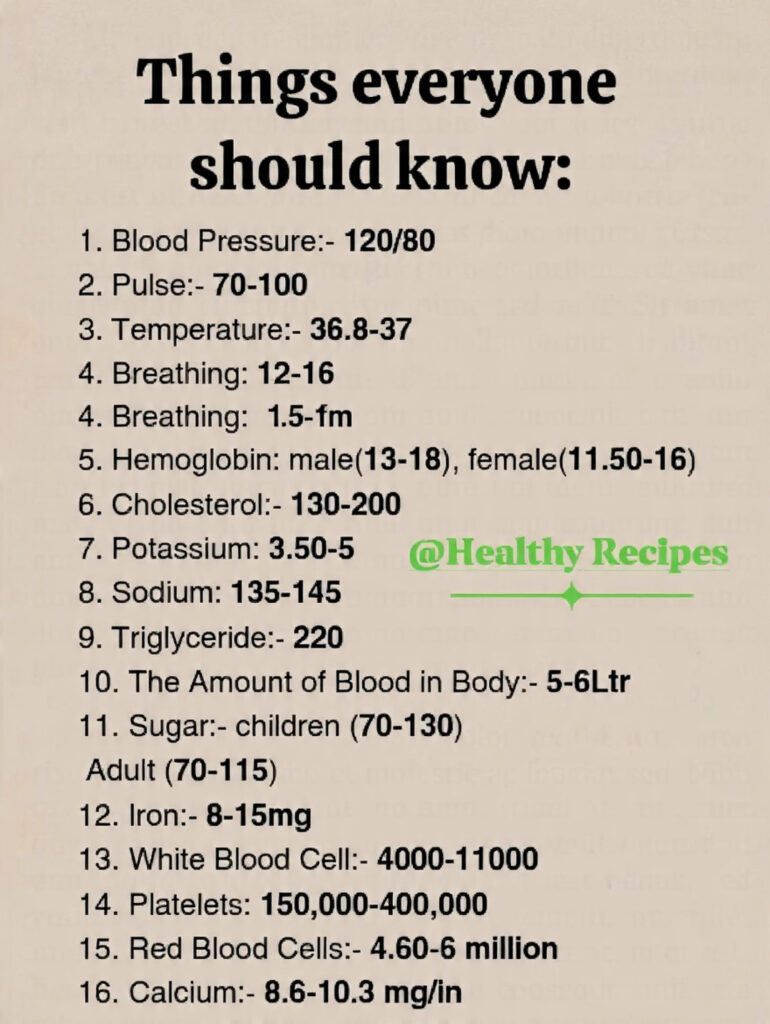Why Monitoring Health Metrics Matters
Regularly tracking key health indicators provides valuable insights into your wellbeing. This guide explores 10 essential metrics that help assess physical condition and potential health risks.
1. Blood Pressure (120/80 mmHg)
| Category | Systolic (mmHg) | Diastolic (mmHg) |
|---|---|---|
| Normal | <120 | <80 |
| Elevated | 120-129 | <80 |
| Hypertension Stage 1 | 130-139 | 80-89 |
| Hypertension Stage 2 | ≥140 | ≥90 |
Essential Health Indicators
- Resting Heart Rate: 60-100 bpm (athletes may have 40-60 bpm)
- Body Temperature: 36.8-37°C (98.2-98.6°F) with fever ≥38°C (100.4°F)
- Respiratory Rate: 12-16 breaths per minute
Blood Composition Metrics
- Hemoglobin:
- Men: 13.5-17.5 g/dL
- Women: 12.0-15.5 g/dL
- Cholesterol:
- Total: <200 mg/dL
- LDL (“Bad”): <100 mg/dL
- HDL (“Good”): >60 mg/dL
Electrolytes and Fats
- Potassium: 3.5-5.0 mmol/L
- Sodium: 135-145 mmol/L
- Triglycerides:
- Normal: <150 mg/dL
- High: 200-499 mg/dL
Remember: Safety comes first. These ranges serve as general guidelines – individual health circumstances may vary. Always consult with a healthcare professional for personalized medical advice and interpretation of test results.

